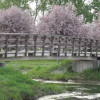Google Traffic Drop: Lets Put Together an ACTION LIST!
- Cloverleafposted 2 years ago
0
Hi everyone,
Since Google's updates these past couple of months, I've noticed a significant traffic drop (about 20%). Every time I gain some traction and hope, it's a case of going back two steps again. I'm sure I'm not alone! I thought it might be a good idea to start a healthy discussion here to learn everyone else's experience with this and how they manage it.
One thing I've noticed—and Matt has assured me everything is fine on the HP end—is that specific articles that were getting good traffic have dropped (some to zero). And yet, they still rank well in SERPS for their keyword. So, I'm confused. How can an article still rank well when I search for the keyword, but the traffic is drastically down?
We can work on improving content quality and E-A-T until the cows come home but, as we all know, it's hard work. I think we could all use some direction. Ideally, what are the most impactful things we can do to boost organic Google traffic? I think most of us can agree that's where the money is.
Perhaps if we all share here what works and what doesn't, from our own experiences, we can create a sort of "action list" that all hubbers can follow.
For me, what DOESN'T work:
1) Updating old articles in the hope that Google will put them back on the map. I've spent ages on this and the rankings never improve.
2) Posting links to articles on Facebook (my 67 friends might read the occasional one or two articles and sometimes share but not often).
A few things that DO work:
1) Deleting old articles and starting afresh with new content to publish, and getting them picked up on a niche site. This usually gets good traffic to begin with (some stick in SERPS and some don't).
2) Posting new articles to Pinterest with quality pin designs (this means manually creating a gorgeous pin rather than posting directly from a photo in the hub). It's time consuming but I do get 19k views a month from Pinterest that way.
3) Helpfully answering Quora questions and including an article link. Not great traffic but sometimes Quora answers come up in Google searches and my hope is that doing this will continue to reinforce the quality of my original articles.
Backlinks: do and don't work. I'm not going to spend hundreds of hours creating backlinks. But when I publish new content, I weave in as many related links of my own and fellow hubbers to keep readers on the niche site for as long as possible. I believe this helps the authoritative score of the niche site, which helps the organic rankings, which helps us all.
OK...over to you guys!Love the idea of this thread.
Agree that updating articles has negligible effects in my experience. If an article has sunk, it's sunk, better to rewrite it.
Also, 19k from Pinterest? That's not too shabby at all. I really need to get on that sometime soon.
I don't use much social media, but I did have some luck posting on Reddit a few years back. You have to be willing to put the time in contributing to the community though. Just spamming articles will get you nowhere and is just plain rude. Also started using Flipboard recently. It's more for curating other people's content, but you can promote your own stuff as well if done right.
As for getting organic traffic, the most important thing in my experience is picking your topics carefully in the first place. If someone else has written about the same subject somewhere else, you either need to add a fresh perspective or go way deeper (see "skyscraper content"). Also, don't pick too similar a title as you competition - Google specifically chooses not to show too many similar titled articles on the same page.
There's lot more that doesn't come to mind right now, but I'd love to hear other perspectives and ideas.Agreed in respect of picking topics carefully, for sure. I had not heard of "skyscraper content" before, but the concept makes a lot of sense.
If I'm understanding that correctly, an action step approach might be to analyze the weakness of an article(s) ranking ahead of us and improve on them, by providing more examples, adding visuals, addressing unanswered questions, or offering a unique perspective.That's pretty much the idea, yeah. In other words, look at what the "competition" has done and try to do 10x better.
I think we’re in a valley at the moment. I’m hoping one day things will perk up. Here is what I can say that I think is helpful.
1. Check Semrush for individual site traffic. Some HP sites automatically get better traffic than others. It isn’t the kiss of death to end up on one of those that produces lower traffic, but it’s likely a more challenging battle.
2. Write on a semi-frequent basis. You’re more likely to get picked up for a mini surge/go viral if you keep writing and posting new articles. I haven’t received one in awhile, but I also have slowed on publishing. All of the ones I did receive a boost like this were from new content, and it was all long and in depth—2,000+ words.
3. Write on things that fit a LARGE audience. Things that people deal with on a daily basis are likely in need of answers or new insight. Obscure articles are fun, but they’re more so passion projects. Things like health and wealth are important, but if you’re not an expert—it’s an uphill battle.
4. Redo pictures in posts. Every few years picture styles change, so you can make things look relevant by changing out images. I still have some I need to do this to… I was doing a huge sweep of this but slowed down.
5. Put your best work on Muckrack. I got featured there and then a bunch of people started contacting me. This can help with idea creation and opening up the doors for freelance work.Cloverleaf, I will try Muckrack because it looks promising.
I find posting on social media is helpful, but I only use it when I see a relevant post. For example, "Killers of the Flower Moon" is trending. I have a related article from my personal site, which is doing quite well right now.
An article may still rank high for its title, but have lost ranking for other keywords or multiple keyword search terms. That's the reason as I understand it why traffic can drop, even though an article is high in the SERPS. Traffic to my articles started dropping in June 2021. Nothing has reversed that trend.
That is a good point about losing rankings for other keywords. I think that's my fear whenever editing (or "improving") an article: I'll mess it up and accidentally remove or change words or phrases that were getting picked up well. Might it be fair to say that when improving an article, we shouldn't change too much?
I don't know. I've split articles up into smaller ones without much success. I've also recently put two articles back together a year after splitting the original because the chunk I broke off only got 1000 views in a year (It was a math article on triangles and I had removed all the basics from the original and put that into a new tutorial, but it never took off).
I continually add content to articles as I think of it, or reword them to make them more understandable and 2read better". however nothing seems to word. It's so disheartening, especially when crappy or short stuff with not much detail sometimes ranks higher, just because it's on what Google thinks are more authoritative sites?Yes, it's difficult to decipher.
Longer was almost always better in the past. It gave more scope for including relevant keywords.
Now the situation seems more complicated. I have one or two articles that are relatively compact that are doing well when a multitude of similar longer articles have foundered.
I'm not sure exactly why, though, or whether I should prune back some of the longer articles.
At this stage, I'm tempted just to sit back and let the Google algo updates and HP changes run their course. I'm weary of tinkering as it generally has had little to no effect.
I think with Pinterest what matters is not impression numbers, which can sound impressive, but how much traffic you actually get to the linked hub article, which is measured in stats like "outbound clicks."
I get around 23k impressions/month with my Pinterest account but barely 300 outbound clicks, which translates as ten hub views/day for a lot of work and more than 660 pins. I don't see that as at all good.
I hate to sound fatalistic but if we've followed all the EEAT advice, then we're pretty much at the mercy of HubPages and Google, in my opinion.
That's because I don't believe that Google is publishing individual writers, as such, but rather dishing out a collective punishment.
If the site as a whole is being punished, or the individual niche sites that make up the site to be more accurate, then it's hard to have much if any influence as an individual writer. You can get your own ducks in a row but that's about it.
HP used to be good at dealing with the Google algo changes, there've been some notable failures but generally they've either seen what's coming down the line or reacted quickly afterwards.
For past two years, though, HP have been caught on the hop, as far as I can see. And yes, the slide did begin over two years ago, you can track the decline using traffic stats sites like SEMRush.You're right; impressions and clicks are not the same. But what an opportunity for brand awareness, no? For example, each pin I design says the name of the niche site at the bottom (e.g., "PetHelpful.com"), so even if they don't click it, people subconsciously see the site name, rather like an ad.
I would love to see HP staff revise the emails that they send out when articles go on a niche site. Instead of saying, "Go promote on Pinterest," why not say, "Here's a gorgeous template for you to use with the website's name on it?". Or even a logo that people can start to associate the site with? Imagine the positive impact that might have on the authority score of the niche site over time!I used to think that about brand awareness. Someone tried to improve the Wikipedia article for Hubpages in July by adding more details about each of the network sites. Unfortunately a self-righteous Wikipedia admin considered it promotional and removed it. There doesn't appear to be any information on individual sites when they're searched for. So no advertising, newspaper or magazine articles or similar. Other than that, I'm not sure how they could be marketed. I've suggested to HP could they make their Pinterest boards shared so we could add our own pins and they might gain extra visibility, but I didn't get any response to that. Meanwhile they don't update the boards terribly often. I would have thought all our articles should be pinned on their boards.
Gosh, I didn't even realize the niche sites had their own Pinterest boards. I just looked, and sure enough, PetHelpful on Pinterest gets 2.3 million monthly views. But interestingly, most of the pins don't even follow HP sizing guidelines, and very little of them say PetHelpful.com on the design itself.
Perhaps, as part of my ACTION LIST, I'll reach out to HP to reinforce your idea of making them joinable boards we can all pin to and suggest a standardized template with consistent size/logo (or at least the website name) for each niche site.
Making the boards joinable and coming up with a standard template should take very little time and effort on their part, but the benefits could be huge! Gotta turn those 2.3M views into clicks!Cloverleaf - Pinterest used to be a good source of traffic a few years back before they changed their algorithm.
I think the changes at Pinterest are why HP staff no longer pin there and they've gone off the idea of us catering the top image of our articles towards Pinterest.
I'm not saying that all pinning is a bad idea but I think that you're greatly overestimating how effective it is for generating traffic for the average hubber.
I've spent a lot of time at Canva creating pins but I have to say that the rewards are minimal nowadays. It's certainly not a replacement for search engine traffic.Out of hundreds of pins, only a fey of mine are repinned, and infrequently at that. New pins in the last couple of years have never been repinned. The odd thing is, Pinterest keeps suggesting my own pins to me.
Yes, I think the algo changes that Pinterest introduced screwed us (a now familiar pattern). Traffic used to be better.
I suspect that it was this change that prompted HP staff to stop pinning.
That said, Pinterest is still better than the other social media sites generally. I mean, even if you get traffic from Twitter or Facebook, it will only be short-lived.
What's interesting to me is that only a third of my Pinterest traffic seems to come from my own pins, the majority comes from what others have pinned. It's another reason why I think the benefits of spending a lot of time making your own pins are relatively limited nowadays.
Also, like you, nearly all the traffic I do get comes from just a handful of pins, while the vast majority languish. Some of it is because certain subjects obviously work much better with the Pinterest user demographic but there's also a large element of mystery.
I think if you really want to succeed with Pinterest then it means catering pins and articles to give Pinterest exactly what it wants. They do at least tell you what's popular and what works in the analytics section. It's not necessarily easy to work for two masters, though, both Pinterest and Google.
Cloverleaf, Great idea! Imagery markets well.
Thank you for starting this Louise. Sad to say I have no clever strategies to offer that individuals can employ as it's a mystery to me why some articles do well and others flop. Although I do have a general idea.
I agree with Paul that there seems to be an over arching issue that is causing problems for writers who try to produce quality material, and that's the downgrading of HubPages by Google.
Goggle has to know that Discover is part of the HubPages family and that the crap that appears on it impacts everything else negatively. Of course, Google connects hate speech and conspiracy theory nonsense on Discover to Owlcation, Soapboxie, and others and acts accordingly.
As individuals who care about the accuracy of content, we need to work with admin to get rid of this stuff. I am currently on a mission to do this; see this thread:
https://hubpages.com/community/forum/35 … ver-drivel
Perhaps, I'm living in cloud cuckoo land (it's happened before) in hoping the platform believes in journalistic integrity.It's great that you're spreading awareness about the nonsense on Discover. I hadn't previously considered the negative impact that would have on all HP sites as a whole. I would love for HP staff to chime in on how they plan to manage this problem!
HubPages, Discover, and the Network Sites are all considered separate sites. Content on one site does not affect the other.
"Goggle has to know that Discover is part of the HubPages family and that the crap that appears on it impacts everything else negatively"
That's not the case, Rupert. Like Matt says, Google treats it as a separate thing.
From the algorithm's perspective, which is a mathematical formula, Discover and the niches are completely different. It uses the URL/domain to categorize sites.
Great post. I couldn't agree more with Cloverleaf - the Pinterest posts have been the most fruitful for me. A little clarity for someone returning after several years absent:
- Does Google give credit for the back links? Like Cloverleaf, I have not seen any results and back links are just tedious.
- I am considering using AI for YouTube videos on a few of my favorite and best performing hubs. Thoughts?
- Other?Facebook
You need at least 5000 friends on Facebook for posts on HP articles to draw any traffic.
Youtube
Most people searching the web are lazy and in a hurry. Many people go to YouTube rather than read articles. Including a video or two in an article and linking the YouTube videos back to HP articles (for more detailed info) is another way of gaining traffic.Even if we know what to do to get more traffic and work 24/7 to create a web presence, the question arises: How many hours of slave labor are we prepared to give to enrich our bosses? We've been here before. A year ago we asked: "Do we still earn 60% of revenue?" that question has never been satisfactorily answered.
Researching keywords and more importantly competition has been the biggest win for me. I can see where they are lacking or what they have missed completely and provide a more rounded article initially. In my experience you need a good rank to start otherwise it is nearly impossible to climb the ladder later on down the road. Losing rank is unfortunately easier than trying to dig out of a hole or resurrect a landslide.
I agree with editing doesn't help. Every time one of my articles has been significantly edited by staff my traffic is decimated. I have never been able to gain rank or traffic back. It is quite disheartening. Had it only been once maybe I would chalk it up to a coincidence, but every single time? I do not know what is happening with the edits, but clearly something isn't working for my articles.
It might not be so bad if editor's were actual experts in the fields they are "editing", but quite frankly they are not and sometimes they are causing more harm than good when going beyond a standard edit. I don't know if the authoritativeness of a site as a whole matters as much as we are made to believe, but essentially spreading misinformation isn't helping anyone or the sites either. I understand they cannot fact check every article they come across, but I think it goes to show just how important it is to let the author's add additional information, pictures, links, or find resources on niche sites or otherwise, to add EEAT. We are suppose to be the authority, let us add whatever the new standard is at any given time (currently linking) to actually improve the quality instead of editors adding what they think is better. I find it hard to do any updating or other enhancements to articles, because staff can come along at any time and change the content as they deem fit.
That said, I'm actually in the process of editing one now, adding more detailed information (so I can remove some of the further reading links I don't agree with), change the top photo staff added that appears on multiple other articles, and fix the Amazon links. It will be fun to see the arbitrary hubscore sit at a 100 for awhile, but I don't expect anything to change rank/view wise. I'm more or less editing it so I can remove the links I do not agree with and add different ones. This article can't hurt from a major overhaul so I'm experiementing with this one a bit as there is some room for expansion and reorganization. It has taken weeks to redo and if it works out great, but I honestly am not expecting much.
Pinterest was at the top of my traffic sources for a long time, but it has fallen to third under Bing. Interestingly enough, one of my articles is responsible for half my pinterest traffic. When that article tanked so did my Pinterest views, but hard to say which came first. I do notice when I am active on a daily basis my Pinterest traffic seems better. However, it is hard to justify that kind of time when I know social media doesn't garner the same kind of cpm's that search engines do. I spent a lot of time initally getting it up and going, but it feels like it requires that same kind of time commitment daily to be even a little useful. I'm intrigued by creating pin designs. How do you create them?
It's hard when social platforms require a good chunk of time or followers for little reward, but following all the SEO & EEAT advice doesn't help with search engine results currently either. I'm not personally willing to pour a ton of time into what appears to be a dying platform. I can't throw things at the wall so to speak and see if anything will stick and churn out positive results.Great insights, Cholee. Thanks for all your input on this topic. I use Canva to create my Pinterest pins. If you search in the Canva website for Pinterest pin templates, you’ll see many to choose from at the correct dimensions. Once you find one you like, just switch out the photo and the text for your own and then save it on your computer. In Pinterest, “create pin” and upload the design you saved.
I suspect that most people use Canva to design their pins. I don't really see creating pins as a major issue for most people. Cholee's pins are certainly well-designed and attractive, in my opinion.
My Pinterest traffic never used to get into the top ten of my traffic sources list but are it's now a top source. It's important to understand the reasons for this, though.
Essentially, my Pinterest traffic hasn't really got much better but my search engine traffic has collapsed, so the "success" is only relative. I'm still doing worse than ever in absolute terms.
Related Discussions
- 13
Do your hubs get more traffic from Bing, Yahoo or Google?
by Cindy Scaccia 12 years ago
Do your hubs get more traffic from Bing, Yahoo or Google?I noticed that I always get more traffic from Bing and Yahoo than I do from Google. How can I increase my Google traffic to my hubs? Where does the majority of your traffic come from?
- 24
Less traffic after moved to niche site?
by Sarah Beth 8 years ago
I pretty much have the same amount of traffic everyday but last week 5 of my hubs were moved to niche sites and since then I've has less half the traffic as normal. What could cause that?
- 15
Tweaking your hub for Google
by webjunkie 16 years ago
I have been a webmaster for over a decade have owned search engined directory's, games, ISP's and a variety of other sites. I have also over the years watch Google grow into the mega giant it is today. Now I keep seeing people here wanting to improve there Google traffic. Can it be done yes,...
- 5
Why do some hubs mostly get Hubpages traffic and other hubs Google traffic?
by MargaritaEden 13 years ago
Why do some hubs mostly get Hubpages traffic and other hubs Google traffic?Why does this happen? It seems some hubs are more popular with Hubpages community, but don't get good traffic with Google, and some have barely any Hubpages views, but score good with Google.
- 50
Complete loss of Google traffic after switching to new profile?
by aa lite 13 years ago
This might be a complete co-incidence, but I switched to the new profile a couple of days ago, and today Google is pretending it doesn't know me. Hubs that ranked on the first page for main keyword are not found in the first 10 pages. Even more worrying, I can't find them in Google even...
- 9
Google Traffic to hubpages - what are the stats
by Wilma Proops 17 years ago
I know there's a website that can tell me where hubpages traffic comes from but I can't remember where it is - please add a link if you do.I've been a member for 10 days but as yet I've had no google seacrh traffic. In your experience how long did it take for traffic from google to build up?I...
















